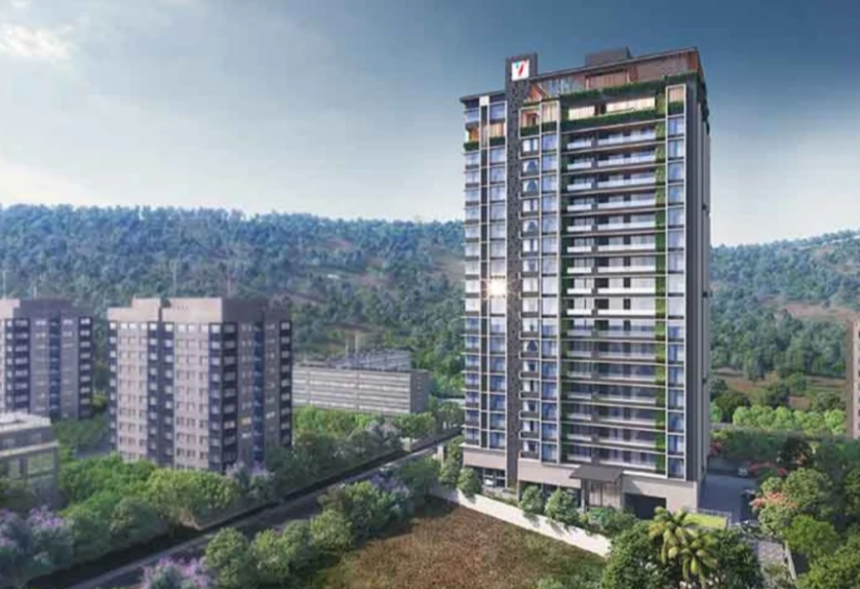How Technology is Changing the Indian Real Estate Landscape
The Indian real estate sector is undergoing a massive transformation, driven by the rapid adoption of technology. From property search to transactions, technology is revolutionizing every aspect of the real estate industry. Innovations like Artificial Intelligence (AI), Virtual Reality (VR), Blockchain, Big Data, and PropTech (Property Technology) are reshaping how properties are bought, sold, rented, and managed. With the rise of tech-driven platforms, smart homes, and digital property transactions, the real estate sector is becoming more transparent, efficient, and customer-centric in India.
Key Technologies Transforming the Real Estate Sector in India
1. PropTech (Property Technology)
PropTech refers to the use of technology to streamline and improve the processes in real estate. It includes online property search platforms, digital home tours, smart property management, and AI-driven property recommendations.
Impact on Real Estate:- Simplified property search and comparison.
- Improved decision-making through data-driven insights.
- Enhanced customer experience with faster and more transparent property transactions.
Example: Platforms like Magic Bricks, 99acres, and Housing.com allow buyers and sellers to connect easily.
2. Virtual Reality (VR) and Augmented Reality (AR)
Virtual Reality (VR) and Augmented Reality (AR) have revolutionized the way people experience properties. Buyers can now take virtual property tours without physically visiting the site.
Impact on Real Estate:- Virtual Site Visits: Buyers can explore homes and commercial properties through 3D virtual tours.
- Better Visualization: AR enables buyers to visualize the interiors and customize design elements.
- Time-Saving: It saves time for both buyers and developers by minimizing physical visits.
Example: Developers use VR/AR tools to showcase under-construction projects and allow customization of interiors.
3. Big Data and Artificial Intelligence (AI)
Big Data and AI are transforming the real estate market by providing deep insights into market trends, property prices, customer preferences, and demand forecasting.
Impact on Real Estate:- Price Prediction: AI algorithms analyze market data to predict future property prices.
- Customer Recommendations: AI suggests properties based on customer preferences and browsing history.
- Market Analysis: Big Data helps developers understand market demand and plan projects accordingly.
Example: AI-powered chatbots are being used for customer interaction, query resolution, and property recommendations.
4. Blockchain Technology
Blockchain technology is bringing transparency and security to real estate transactions. It enables secure and transparent property transactions by creating a tamper-proof digital record of ownership.
Impact on Real Estate:- Fraud Prevention: Blockchain reduces the chances of property fraud by recording transparent property ownership history.
- Smart Contracts: Automated and secure transactions through smart contracts reduce paperwork and speed up the process.
- Transparent Transactions: Buyers and sellers can verify property records easily.
Example: Blockchain technology can significantly reduce property disputes by ensuring clear ownership records.
5. Internet of Things (IoT) and Smart Homes
The Internet of Things (IoT) is revolutionizing real estate through smart home technology. Smart homes use connected devices like smart locks, lighting, thermostats, and security systems that can be controlled remotely. Impact on Real Estate: Energy Efficiency: Smart homes help reduce energy consumption by optimizing usage. Enhanced Security: Smart security systems improve home safety with remote monitoring. Increased Property Value: Homes with smart features have higher market demand and value. Example: Smart home devices like Alexa, Google Nest, and smart CCTV systems are becoming popular in modern Indian homes.
6. Drones in Real Estate
Drones are now being used for site surveys, construction monitoring, and marketing. Real estate developers use drones to capture aerial views of the property and its surroundings.
Impact on Real Estate:- Better Site Surveys: Drones capture high-quality aerial images and videos of construction sites.
- Improved Marketing: Developers use drone footage to create impressive marketing content.
- Faster Project Inspections: Drones help in monitoring construction progress and identifying issues early.
Example: Large real estate developers use drones to showcase large residential and commercial projects.
7. Online Property Marketplaces and Digital Transactions
Online property marketplaces have transformed the way people buy, sell, or rent properties. Platforms like MagicBricks, NoBroker, and 99acres provide a one-stop solution for property transactions. Impact on Real Estate: Easy Access to Property Information: Buyers can view property details, photos, and videos online. Paperless Transactions: Online platforms enable digital documentation and e-signatures, reducing paperwork. Faster Transactions: Digital transactions reduce the time taken to close a deal. Example: No Broker offers zero brokerage services, allowing buyers and sellers to connect directly.
8. Smart Cities and Infrastructure Development
The Indian government's Smart Cities Mission has encouraged the adoption of technology-driven infrastructure. Smart cities use data and technology to improve urban planning, transportation, and energy management.
Impact on Real Estate:- Rising Property Demand: Increased infrastructure development boosts property demand in smart cities.
- Better Urban Planning: Technology enables efficient urban planning and resource management.
- Sustainable Real Estate: Focus on green buildings and energy-efficient infrastructure.
Example: Cities like Pune, Ahmedabad, and Bangalore are rapidly evolving into smart cities.
Challenges of Technology in Real Estate
Data Privacy: Storing personal and property data online raises privacy and security concerns. Adoption Resistance: Traditional real estate agents and buyers still hesitate to adopt technology. Infrastructure Limitations: Smart infrastructure development is still limited to metropolitan cities. High Initial Cost: Implementing technologies like Blockchain, IoT, and AI requires high initial investment.
The Future of Technology in Real Estate in India
The future of real estate in India is set to become more technology-driven. Some emerging trends that will dominate the sector include: Metaverse Real Estate: Virtual real estate in the metaverse will gain popularity for buying, selling, and experiencing properties. AI-Powered Real Estate Portals: AI will further enhance property recommendations, price predictions, and customer engagement. Smart and Sustainable Buildings: Increased demand for eco-friendly and smart buildings will shape the future of real estate. 5G and IoT Integration: Faster internet and IoT-enabled smart homes will become mainstream.
Conclusion
Technology is undoubtedly transforming the real estate landscape in India, making it more efficient, transparent, and customer-centric. From virtual tours to blockchain-based transactions and smart home solutions, the future of real estate looks promising. As India moves towards smart cities, sustainable development, and tech-driven infrastructure, embracing technology in real estate will unlock new growth opportunities, reduce operational costs, and improve customer satisfaction. Investors, developers, and buyers who adapt to these technological advancements will undoubtedly stay ahead in the evolving real estate market.




